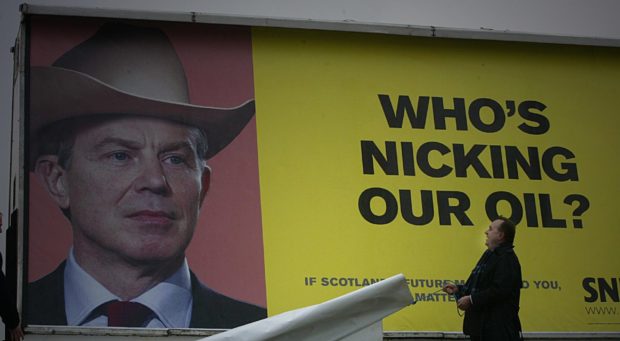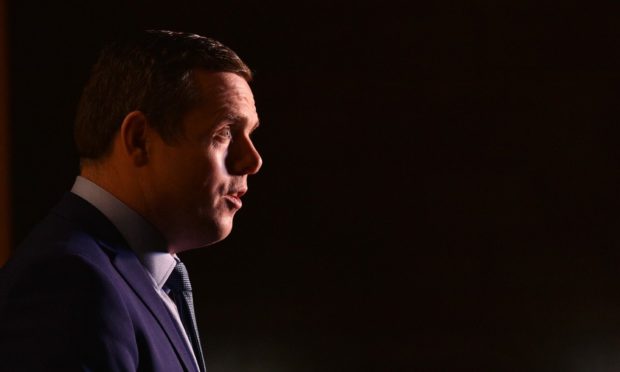Douglas Ross has claimed Nicola Sturgeon’s North Sea intervention was motivated by her desire for constitutional change – not climate action.
The Scottish Conservative leader attempted to pile the pressure on the first minister over her call on Thursday for a UK Government review of approved offshore licences, including the hugely controversial Cambo scheme off Shetland.
Mr Ross reminded the SNP leader of her party’s famous “It’s Scotland’s oil” slogan, saying that now “they wish it was gone”.
Ms Sturgeon revealed on Thursday that she had written to Prime Minister Boris Johnson to ask for a reassessment of previously approved oil and gas licences, insisting that it could not be “business as usual in the face of a climate emergency”.
The move followed the publication of a UN panel report on climate change this week, and comes ahead of the COP26 climate conference in Glasgow.

However, her letter was criticised by environmental groups and Labour for not going far enough, while also being questioned by the Tories, industry leaders, and even some SNP figures, amid claims it would jeopardise jobs and prove counter-productive.
Mr Ross has now suggested Ms Sturgeon’s intervention was designed to secure the SNP’s proposed power-sharing agreement with the Scottish Greens, and to further the pro-independence cause, rather than to help tackle climate change.
“Nicola Sturgeon’s letter is motivated primarily by the constitution, not the climate,” he said.
“This change of heart is about sealing a nationalist deal with the Greens and provoking a grievance with the UK Government in the run up to COP26.
This change of heart is about sealing a nationalist deal with the Greens and provoking a grievance with the UK Government in the run up to COP26.”
“Instead of playing childish political games to further their nationalist interests, the SNP should focus on tackling the Covid economic crisis.”
The Highlands and Islands MSP added: “The SNP used to shout from the rooftops that ‘it’s Scotland’s oil’ – now they wish it was gone.

“More than 100,000 jobs depend on Scotland’s oil and gas industry. A speedy but sensible transition to net zero is essential to protect those jobs, our communities and the wider economy.
“Where are working class families supposed to find the cash to pay the higher energy bills that would emerge from abandoning the North Sea sector?
“The oil and gas industry has more detailed plans for reaching net zero than the SNP Government, which has missed its climate change targets three years running.
“As usual, there is a vast gap between the SNP’s words and actions.”
2. Our responsibility to tackle climate change must govern the approach to any new licence applications. But licences for fields like Cambo were granted many years ago. That’s why I am asking UK Govt – who hold the power – to reassess these licences in light of climate emergency.
— Nicola Sturgeon (@NicolaSturgeon) August 12, 2021
A spokesman for Ms Sturgeon said: “We recognise the importance of the North Sea offshore sector to Scotland’s economy – but we also recognise the reality of the climate emergency and the ‘code red for humanity’ which was signalled this week.
“Industry leaders themselves recognise the need for a just transition.
“Douglas Ross should acknowledge that, and the fact that Scotland is uniquely well placed to utilise the skills and expertise of the North Sea sector to achieve that transition so that jobs and prosperity can be secured in the years to come.”
